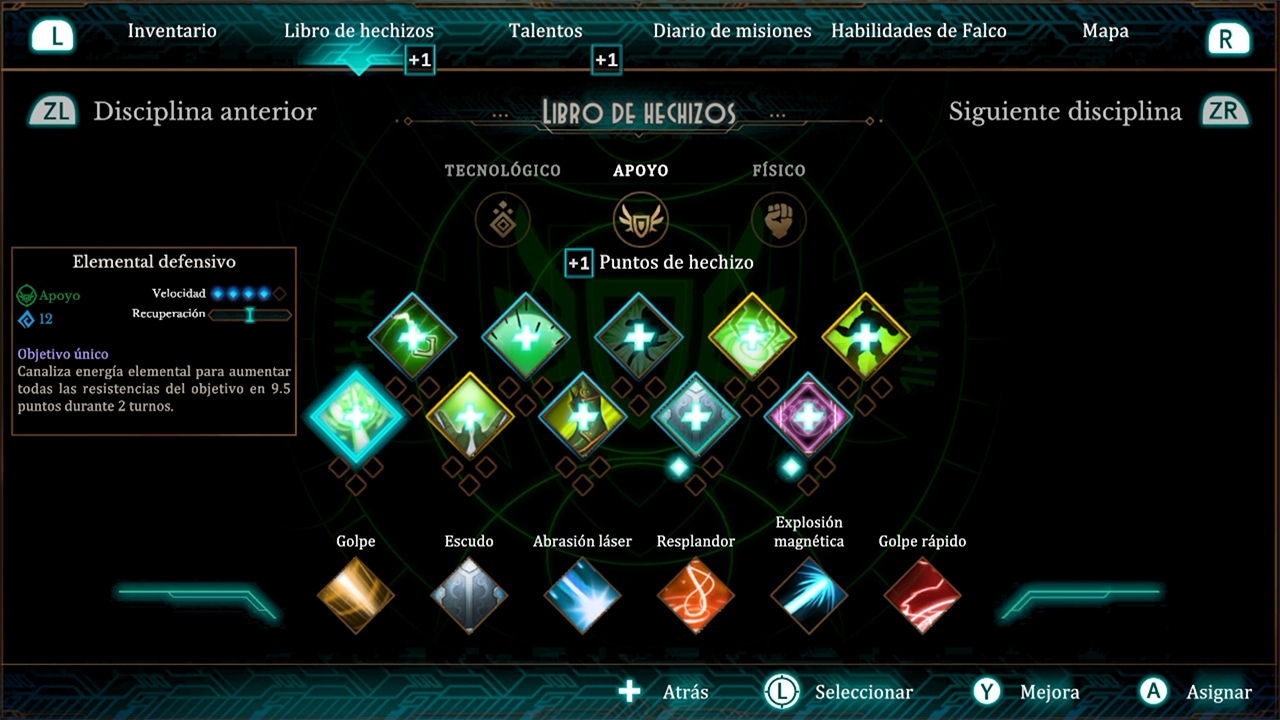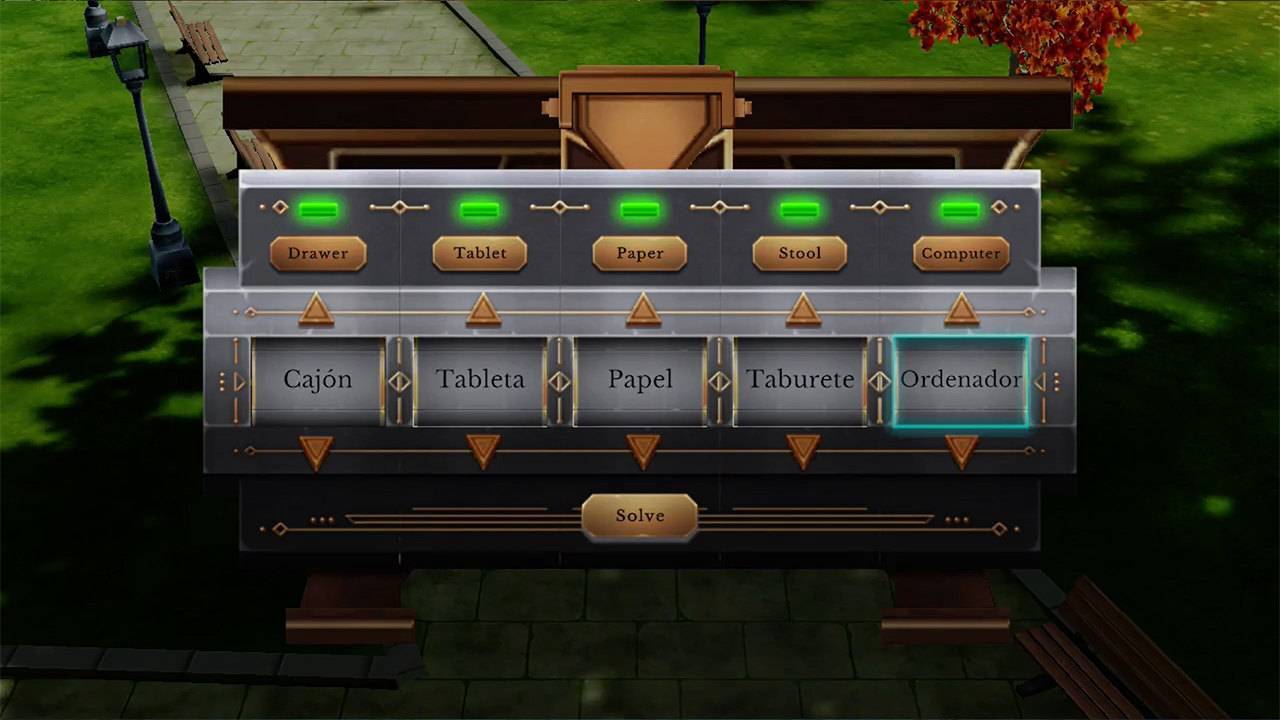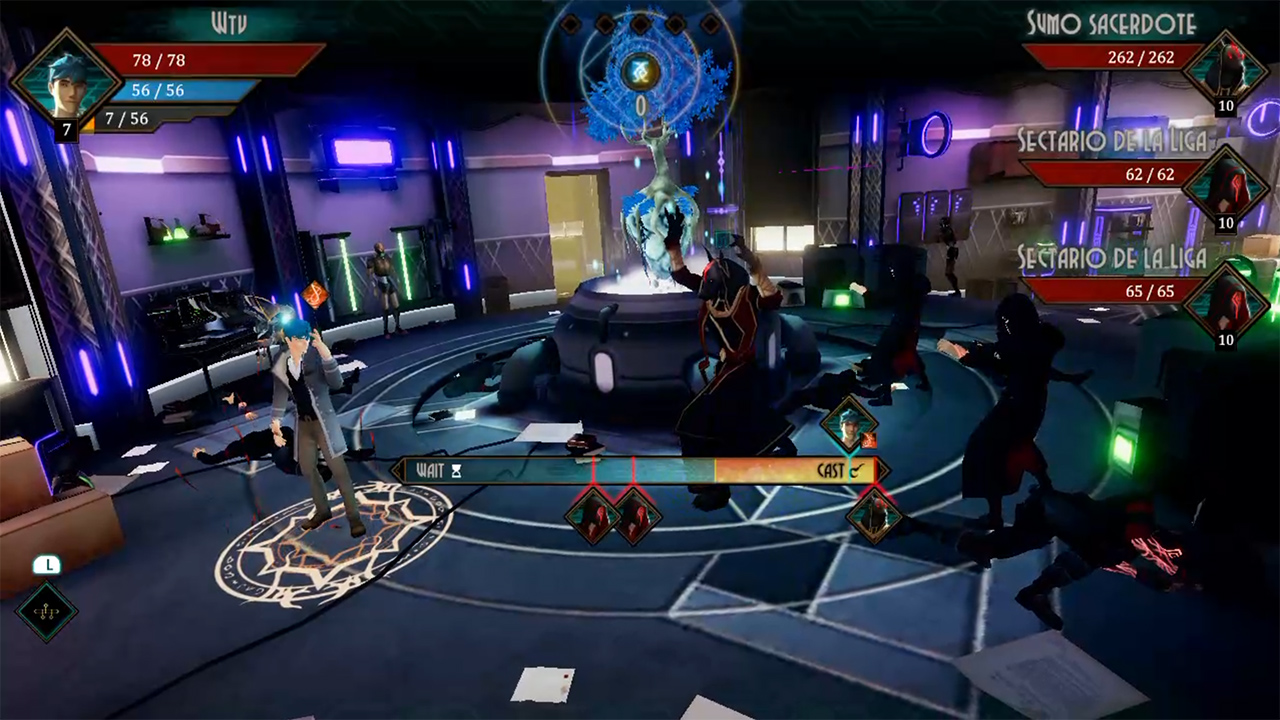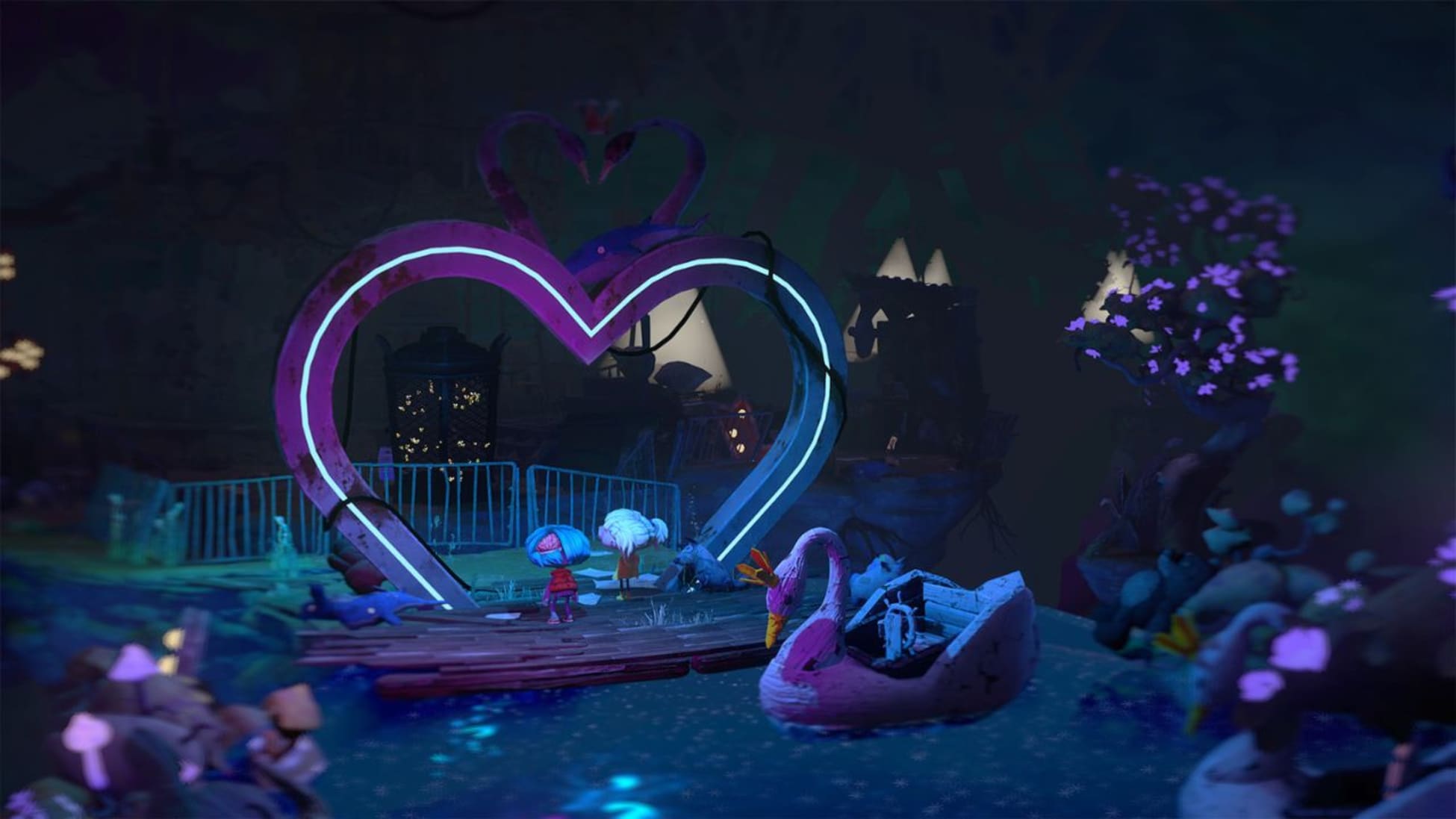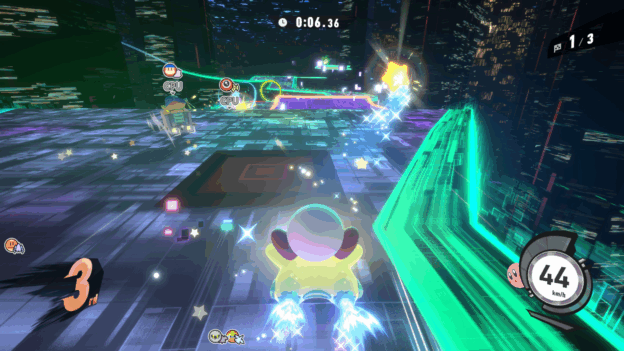Review: Terra Alia: The Language Discovery RPG (Nintendo Switch)
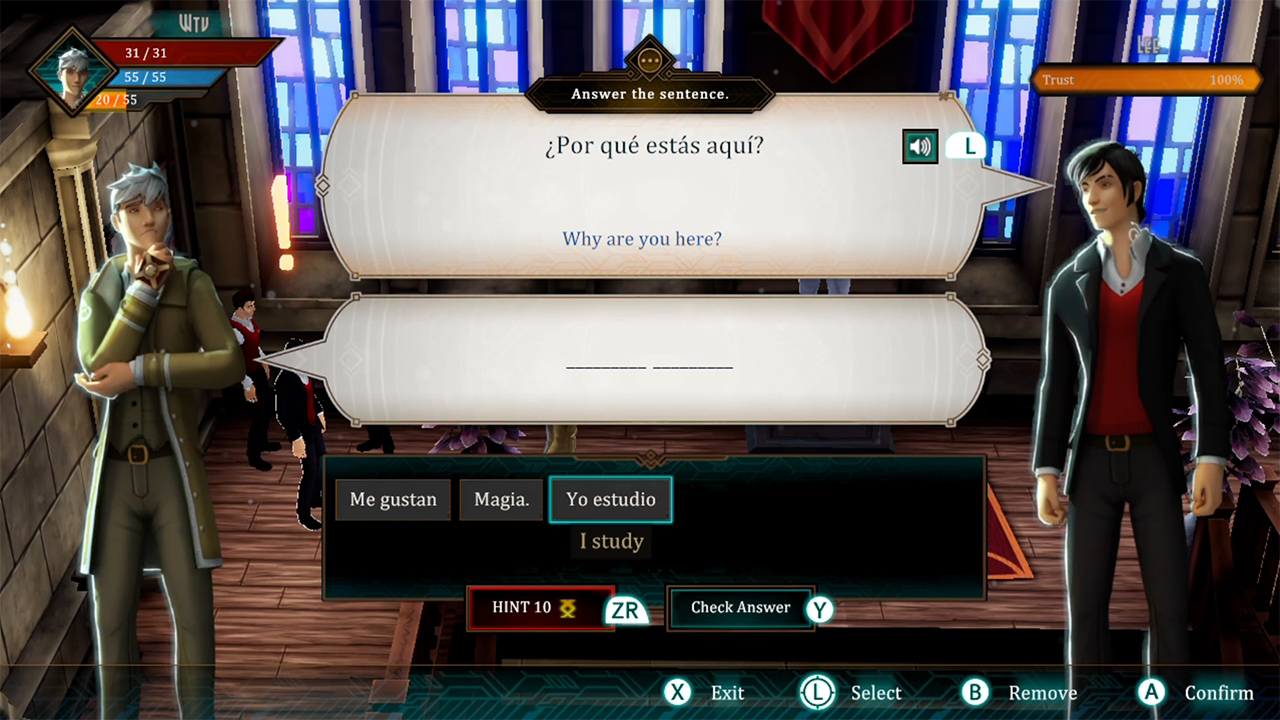
Terra Alia: The Language Discovery RPG is exactly as it’s described in the title. You play as a witch or wizard who’s summoned overseas by your mentor to further your magical studies in a new land. However, two obstacles immediately present themselves. First, your mentor, Professor Esperanto (clever), has gone missing. That’s to be expected. Second, there’s an arbitrary rule in Terra Alia that students cannot use their magical abilities in a new country until they learn that country’s language.
So, you’ve got to save your professor, but not until you’ve learned the native word for “desk.” Oddly, this is all explained to you by Professor Esperanto. Or, at least her ghost? Spirit? Play on to find out.
Before all of this starts, you’ll need to tell the game your native language (for menu text, the bulk of the dialogue, etc.) and what language you want to learn (for the puzzles and quizzes). The available languages are English, Spanish, French, Chinese, Brazilian Portuguese, Italian, German, Russian, Japanese, and Korean. I tried out two for my review period: French (because I took it in high school and college and managed to retain a bit of the lingo) and Japanese (because I’m trying to learn it now).
There are many resources out there for learning a new language, and the one thing they all have in common is their insistence upon immersion. The more you’re forced to hear and use the language, the quicker you’ll learn it. In that regard, Terra Alia can be helpful; it turns your gaming time into education time.
The problem is that neither aspect is fully fleshed out.
Gameplay centers around exploring the immediate areas to learn new words in your chosen language. Bookshelf, flower, trash can, etc. All of these words are added to your in-game vocabulary, but I suggest keeping a notebook handy for practice. This will help with reinforcement when you’re not playing and as words are dropped from use in the game when you move to new areas. It’s worth noting that because you have to actively click on an object to learn its translation, it’s possible to miss certain terms.
There are plenty of characters to speak with as you move along, most of whom are also learning your language and will speak in your native tongue. Some of these people will give you quests that help you level up and provide you with new words. Others will throw down challenges in which you can use what you’ve learned.
As you move along, you’ll also find various treasure chests that are opened with quizzes. There are also computer terminals scattered about where you can practice your new language skills to gain “lingua” for the battles. All of this is presented in a decent interface that allows for the repetition you’ll need to memorize the new terms; you’re never really punished for having to work through these quizzes multiple times.
The battles are tied into the story or side quests; no random encounters here. The turn-based combat is timer-driven, allowing you to select from esoteric, technological, support, or physical options. You’ll have powerful attacks, but they can be slow and must be timed properly. Same for your defense. If the enemy starts to cast a big spell, you can disrupt with a quicker jab, provided you’re not caught up in a timely spell of your own. Your standard skill tree will allow you to level up and fine-tune your abilities, while numerous items acquired along the way will ensure you’re never fully overmatched. Combat is mostly pretty easy throughout, provided you’ve learned what you’ve been taught; your newfound vocabulary can be used to trigger devastating attacks.
The problem with the whole package is that it never fully decides if it wants to lean more towards education or entertainment. The combat system is fine, but it never evolves or becomes all that challenging. Graphically, it comes across as shovelware. That’s not to say it’s bad or outdated, just basic.
It fares a bit better with education, provided you’re mainly just out to learn vocabulary and pronunciation. Each new word you’re given will be spoken on command. This feature was tremendously helpful during my Japanese gaming sessions, but also quite useful for some of the trickier terms when playing in French. However, you’re not learning much grammar here. Some of the puzzles put the terms into full sentences, but they don’t explain the rules behind the sentence structure. That’s fair, of course; there’s only so much content the developers can pack into a game that can be completed in around 10 hours. But unless you’re supplementing this game with outside lessons, you’re really only learning enough here to annoy your friends.
And curiously, the Japanese translations here didn’t always align with what I’ve been taught by Rocket Languages. I’m not fluent enough to say who was right, but it’s something to be wary of as you fill in that notebook I suggested.
So, Terra Alia becomes a very easy game to recommend to a very specific audience. If you’re learning a new language, it provides a quick, light adventure to help you on your way. It adds to the immersion. If you have no need to learn a couple hundred foreign language terms, however, stick with adventures where mastering the combat system is challenging enough on its own.

